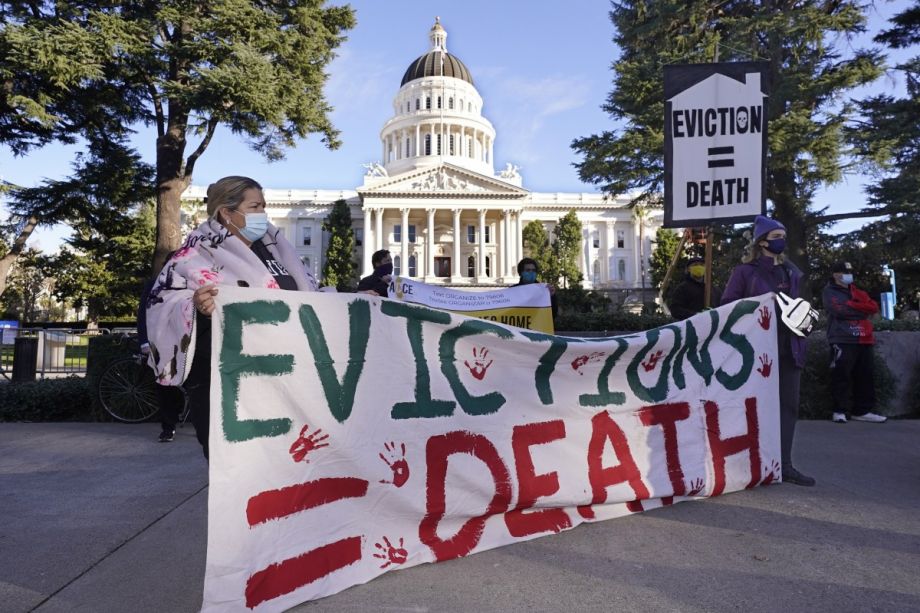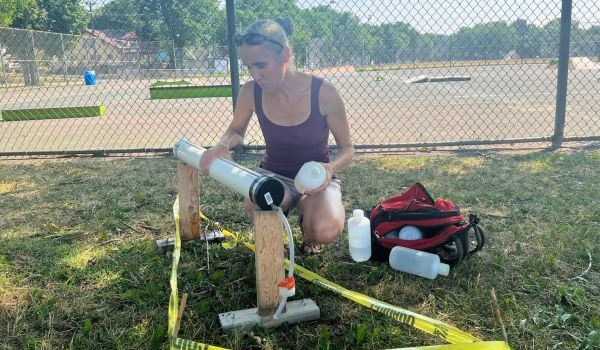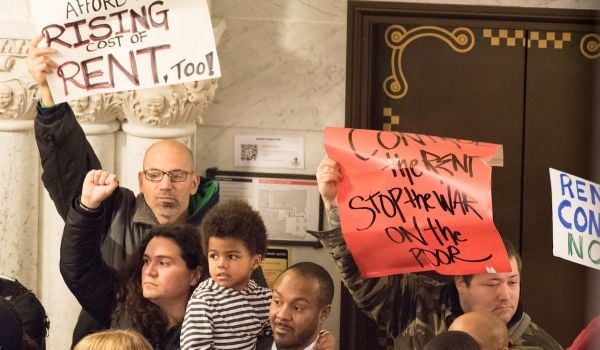California to Pay Off Back Rent
All past-due rent that accumulated in California because of the Covid-19 pandemic could be paid off by the state government under a $5.2 billion plan supported by Governor Gavin Newsom, according to the Associated Press. The money comes from multiple federal aid packages and an unexpected state budget surplus.
Jason Elliott, a counselor to Newsom on housing and homelessness, told the AP it was enough to cover all rent arrears statewide, expanding on existing rental assistance. Distributing funds for rental assistance is a challenge, though, with just $32 million in rental aid distributed out of $490 million requested through May.
Meanwhile, the state legislature has not agreed on an approach to evictions. On Thursday, the CDC announced it was extending eviction protections for an additional 30 days past the original expiry date of June 30.
Under existing rental aid programs in California, landlords can receive 80% of past-due rent from the state in exchange for forgiving 20%, according to a separate report on ABC News. But the new plan is to increase the state’s reimbursement to 100%, restoring all rent that landlords may have lost last year.
“Our challenge is to distribute this as quickly as possible while guarding against fraud and making sure we prioritize those who are struggling the most,” Elliott told the New York Times.
160 Applications for Accessory Dwelling Units in First Weeks of Chicago Pilot Program
Since May, property owners in Chicago have applied for permits to build more than 160 coach houses and basement and attic apartments as part of a new three-year pilot program that eases restrictions on construction of accessory dwelling units, according to the Chicago Tribune.
The pilot program only applies in certain areas of the city, but was created as part of an effort to establish more low-cost housing in Chicago, the report says. The program has different rules for single-family homeowners versus multi-family properties, and owners who develop more than two ADUs on a single property are required to set aside half of the units at rents that are affordable to people earning up to 60 percent of area median income, according to the report. In the first few weeks of the program, 151 property owners have applied for permits to create 167 new accessory units, with about two thirds of the applications submitted for basement or attic apartments. The affordability requirements have applied to 12 approved units so far, according to the report.
The Chicago Department of Housing will also offer forgivable loans of up to $25,000 for low- and moderate-income homeowners who want to create ADUs on their own properties, the Tribune reported. The Department told the Tribune that the ADU program would be evaluated after three years for the number of units, and the number of affordable units, created in each district. As Next City recently reported, Charleston is preparing to launch a small grant program to help homeowners build accessory dwelling units there.
Twin Cities Have the Largest Racial Homeownership Gap
The gap in homeownership among Black and white residents in the Twin Cities is the largest of any metropolitan area in the country, and it has “worsened dramatically since 2000,” according to a new report from the Urban Institute.
Black homeownership is declining the most in gentrifying neighborhoods where housing costs are rising the most, suggesting that in addition to renters being priced out of apartments, homeowners “face rising property values and higher property taxes and thus a greater likelihood of being housing cost burdened or subject to foreclosure,” the report says.
Between 2005 and 2020, the number of single-family homes that were rented rather than owned grew from 22,000 to 48,000, in line with growing shares of rental housing in other cities, according to the report. And investors are buying up a growing share of single-family homes in the Twin Cities, particularly in areas with decreasing populations of low-income residents and residents of color , it says.
“Although single-family rentals may offer moderate-income families an opportunity to live in convenient, comfortable neighborhoods, they also may be contributing to reduced homeownership and may subject tenants to precarious conditions,” the report says. “Local governments should work to ensure renters have protection against unjust eviction, and state and national governments should ensure investor landlords — particularly large, corporate entities, are regulated and taxed in a manner that reflects their impact on society.”
The research was produced in partnership with the Alliance, the Family Housing Fund, and the Center for Economic Inclusion, with support from the McKnight Foundation.
This article is part of Backyard, a newsletter exploring scalable solutions to make housing fairer, more affordable and more environmentally sustainable. Subscribe to our weekly Backyard newsletter.

Jared Brey is Next City's housing correspondent, based in Philadelphia. He is a former staff writer at Philadelphia magazine and PlanPhilly, and his work has appeared in Columbia Journalism Review, Landscape Architecture Magazine, U.S. News & World Report, Philadelphia Weekly, and other publications.
Follow Jared .(JavaScript must be enabled to view this email address)


















